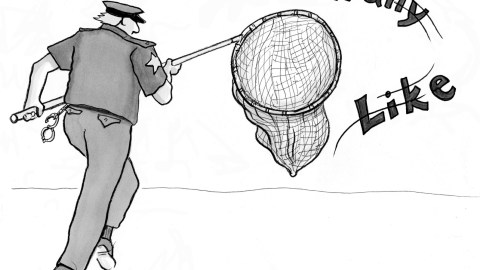Why Words Won’t—and Can’t—Sit Still… Like… Literally…

1. We all need them, but some, like me, love words, and the mind feast they bring. But while words shape our lives, few grasp the weird way they work.
2. Words “won’t—and can’t—sit still (like, literally),” declares John McWhorter (Words On The Move).
3. You may not like “literally” being used nonliterally, but Hume used it like that in 1806.
4. And lots of language is nonliteral—idioms, metaphors, etc. “Literal” now has idiom-like nonliteralness.
5. McWhorter says, “Just about all words in any language have different meanings now than they did in the past” (dictionaries are snapshots of an unending parade).
6. Language is more speech than text (97% of languages aren’t written). And speech isn’t like text . Text-centric thinking (“your brain on writing”) misleads.
7. Pause to ponder… that we don’t speak spaces (speech’s continuous undelimited stream hampers machines). Ancient Greek, written without spaces, is closer to speech.
8. And speech must do much more than text (facing contexts with interpersonal dynamics).
9. Linguists use inept words for all this. Speech uses “modal pragmatic markers” (MPMs), but pragmatics isn’t about practicalities, and modal should be moodal (mood-related).
10. MPM’s are part of handling F.A.C.E. (Factuality marking, Acknowledging states of mind of others, Counter-expectation signaling, Emotional easing).
11. Like it or not, “like” is literally morphing into a F.A.C.E. marker. “Literally” is likewise being “grammaticalized” (—>a word becomes “a piece of grammar”).
12. A “like” shift is how adverbs got their “-ly” suffix, a contraction of “-like” (“like” first meant body).
13. Some dislike “functional shifting” (word-category switching) but Shakespeare loved to play with nounification and verbification (e.g., “gentle” is verbified in Henry V).
14. Shifts can be so extreme that words can become their opposites. But “contronyms” aren’t harmful e.g., to “dust” can mean removing or adding particles, but nobody dusts floors with sprinkling sugar.
15. Contrary to certain philosophical (overlogical) preferences, languages work fine despite many contradictory elements. Their inconsistencies don’t confuse—context let’s us manage multiple meanings easily. As Ray Jackendoff notes, “enriched composition” adds unspoken clarifications.
16. Languages leverage “unknown knowns” (Rumsfeld’s omitted 4th). Few speakers using “like” as an MPM know that they know how to. Native grammar is mostly a tacitly absorbed tangle of rules and exceptions, that still works wonderfully.
17. Morality works partly like grammar. Both evolved for social survival. We’re born into both unchosen. In both we instinctively, unconsciously, feel what’s “right” (System 1 + “moral dumbfounding”).
18. Morality’s behavioral rules and language’s grammar rules are in a sense unchoosable. They’re tacit and collective, hence change slowly, and communally, not individually, often intergenerationally.
19. McWhorter says language sticklers (word-pedant police) confuse logic with fashion. Wouldn’t admonishing kids for not dressing like their grandparents be bizarre?
20. Jackendoff says all conscious thinking involves speech (self-talking) and System 2 = System 1 + language.
21. Words play inconsistent, “illogical,” unoptimized, roles in language’s exquisitely effective glorious mess. Other mutating domains are similarly messy (evolution knows, economics resists).
Illustration by Julia Suits, author of The Extraordinary Catalog of Peculiar Inventions, and The New Yorker cartoonist.





